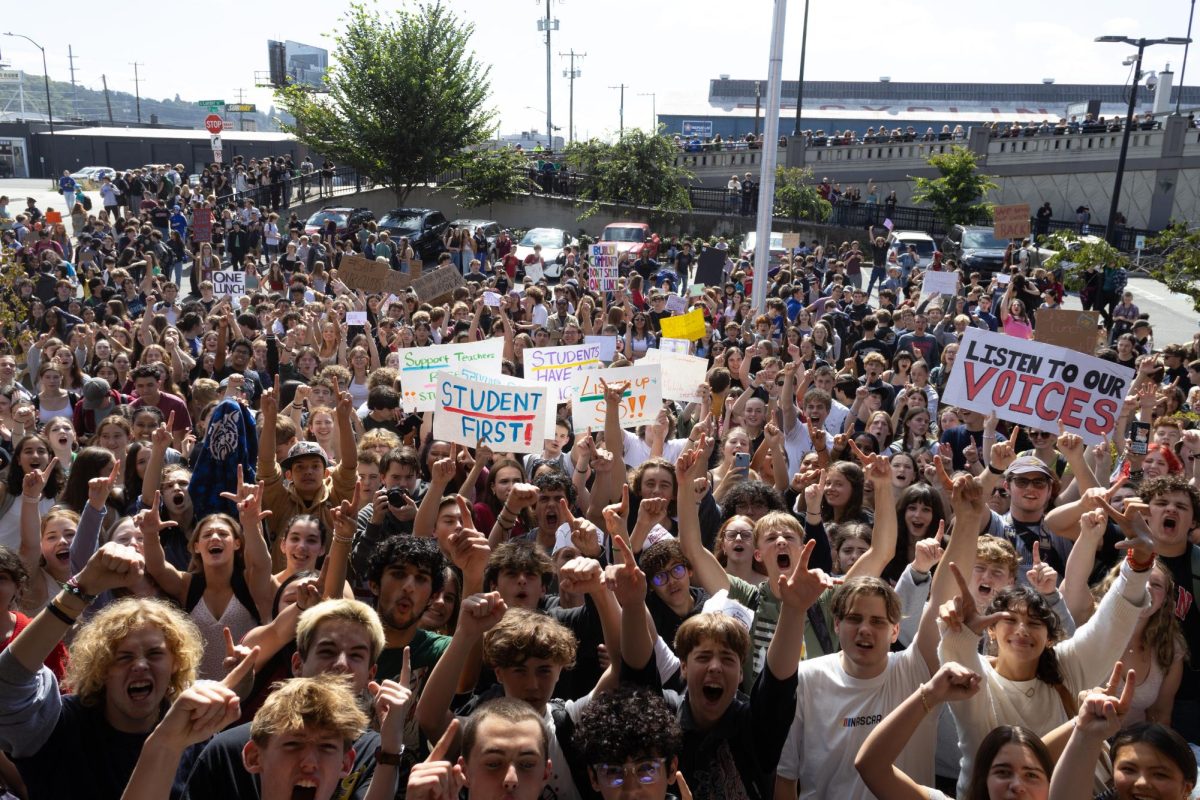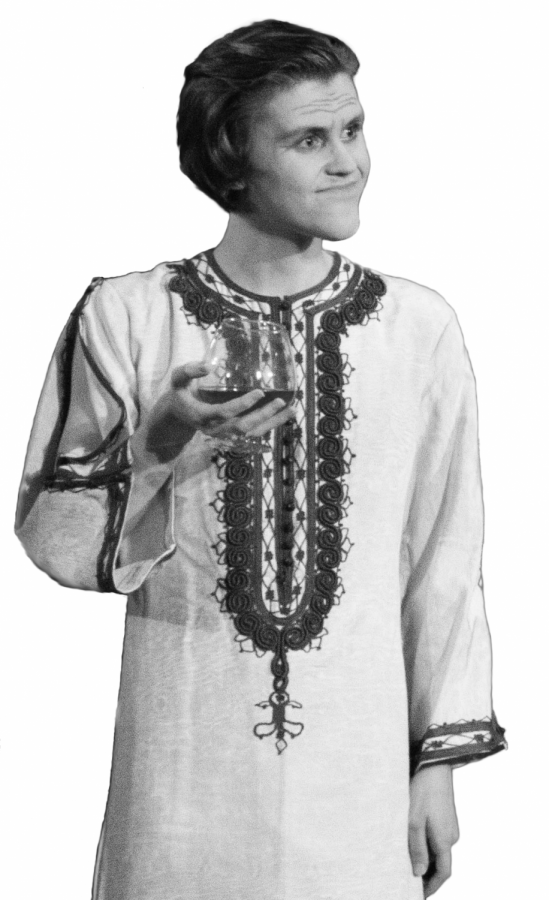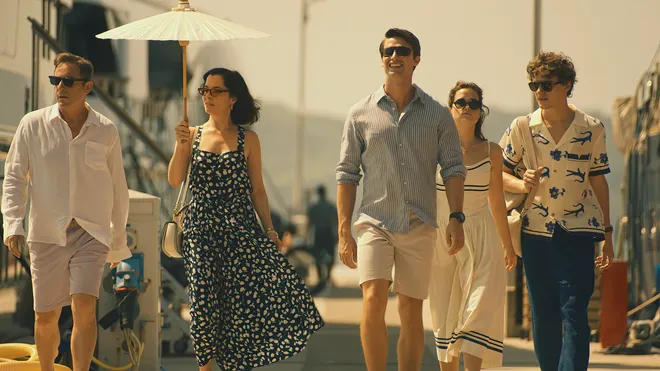Zoe Bodovinitz, News Editor
Originally Published October 25, 2018
Julian Whitworth Max Berndt as Peiro in the fall play, “Big Love.” The play explores modern gender politics.
If I had to pick one word to describe the fall play “Big Love” by Charles Mee I’d choose: angry.
Not angry in a negative sense. Angry in a way that, through the enraged performances of the cast, makes the audience upset at the way things are in our society.
“Big Love” is a story that highlights the oppression that we hear about everyday, whether it be sexual assault, rape, LGBTQ+ rights and more. Though based on an ancient civilization where 50 sisters are forced to marry their 50 cousins, it’s told through modern dialog paired with references from today.
The simple stage design and soft lighting juxtaposed the loud and dramatic acting of the cast. The play focuses on three sisters, Thyona, Olympia and Lydia portrayed by seniors Sydney Ohm, Olivia Knoll and Eileen Macdonald.
All three women have different views on their marriage at hand. Thyona is not only against the idea of marrying her cousin, but against the whole idea of men. In her portrayal, Ohm yells and screams expletives to show her hate for the male species, even announcing that, “Boy babies should be flushed down the toilet.” Olympia fantasizes what being with a man and living a beautiful married life would look like, which Knoll performs with naive awareness. Lydia is a bit more level-headed and quiet as it’s obvious she can see where both her sisters are coming from.
From the moment the cousins and grooms-to-be are brought into the play, the audience sees that their characters are different. Instead of walking on stage like every other character and beginning their lines, seniors Daniel Windus and Riley Stowell and sophomore Gavin Bradler playing Constantine, Oed and Nikos respectively, rappel from the ceiling and into the audience, simulating a helicopter. They quickly assert their masculine dominance, and Constantine unleashes into a rant about wanting a traditional wife, stating that he’ll have his bride even if her, “hands are bound behind her back.”
From their opening lines, the cousins make the audience uncomfortable. They are convincing in their delivery of controversial topics surrounding masculinity. It’s clear that they aren’t sorry for the situation at hand. Constantine justifies their behavior by stating that, “life is rape.” The cousins believe that everyone is taken by force so the sisters should just give in.
The play is broken up by smaller characters telling their own narratives. Senior Diego Ortiz plays the piano and sings under a spotlight, allowing the audience to reset from the intensity that occurs throughout the other scenes.
As the play moves on, both the sisters and the cousins complain about their own issues. The sisters condemn men and the cousins yell about how hard it is to be men.
When marriage between the families becomes the only option, Thyona comes up with a plan for all the sisters to kill their grooms so they can be free of the contract they are stuck in. Olympia is convinced and Lydia finally gives in.
The scene of the murders was riveting to watch. The lighting got darker, and Britney Spears’ “Toxic” played slowly in the background, giving everything an ominous mood. The actual killing of the grooms was choreographed so it resembled a dance. Passion was laced with anger as each bride tied a red ribbon around their cousin’s neck, and each man fell to the floor.
Except for Nikos, who ran off with Lydia as they claimed to have truly fallen in love. Thyona’s anger returned after seeing her sister’s betrayal, and they argued over breaking promises and finding love. Eventually they all agree that love conquers, and it seems as though everything is resolved. The last scene floods the stage in red, with Nikos and Lydia showing concerned looks before the lights go down.
The most important takeaway from “Big Love” is to listen to victims. In our society, oppressors and their crimes are examined, while victims are not heard. ‘Big Love’ does the opposite. The play showcases the pain and especially the internal suffering that victims of harassment experience.
‘Big Love’ is an important play for people to see and learn from. Its anger makes the audience think about what they know surrounding the climate of harassment and how they can increase the awareness that victims need.
























